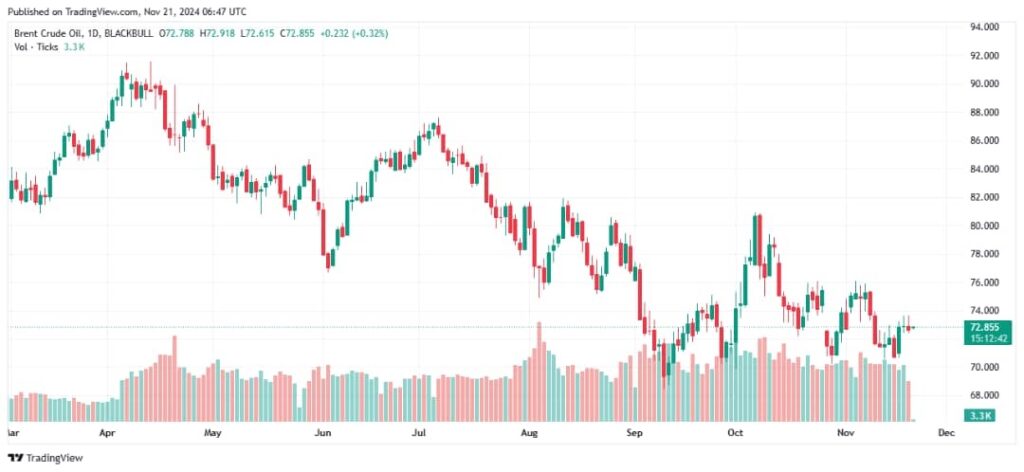
Brent rose to $74.49 and WTI to $71.29 on Friday, gaining 2% and marking weekly increases of 5% and 6%, respectively. The rise was driven by sanctions on Russia and Iran, rate cut expectations, and robust Chinese crude imports.
The IEA revised its 2025 demand growth forecast to 1.1 million barrels per day, supported by China’s stimulus efforts. OPEC+ supply cuts and rising non-OPEC production are expected to influence the market amid geopolitical tensions.
UK Economy Contracts For 2nd Month, Piling Pressure On Labour’s Strategy
The UK economy shrank by 0.1% in October, marking a second consecutive month of decline, the first since the pandemic’s onset. Economic output remained flat in services, while manufacturing and construction both saw reductions. This weak performance precedes Labour’s first budget, which includes significant tax increases on businesses. The disappointing data adds to a series of underwhelming economic reports, with critics warning that Labour’s policies may hurt growth in the short term. Economic growth is expected to stagnate in the final quarter of 2024.
Japan’s Small Firms Face Wage Strain, Impacting BOJ Rate Hike Plans
Japan’s small businesses are dedicating a larger share of profits to wages than larger companies, raising concerns about the sustainability of pay hikes. This could hinder the Bank of Japan’s plans to increase interest rates. While wage growth is vital for a consumption-driven recovery, smaller firms, which employ 70% of the workforce, may struggle to keep pace with higher pay demands. Many SMEs have raised wages out of necessity rather than profit growth, and with labor costs harder to pass on, further pay hikes may not be sustainable.
Senegal Eyes 7% Budget Deficit In 2025, Down From 10% Audit Findings
Senegal anticipates a 7% budget deficit in 2025, a decrease from the 10% revealed in a recent audit that led to a freeze on the country’s $1.9 billion IMF program. The audit uncovered higher debt and deficit figures, prompting bond yield hikes and credit rating downgrades. While Senegal aims for economic growth of 8.8% in 2025, it faces challenges from slower secondary and tertiary activities. The government plans to implement a prudent debt policy, secure financing through traditional donors, and explore domestic diaspora bonds.
FGN to Raise N120 Billion in December 2024 Bond Auction
The Nigerian Federal Government, through the Debt Management Office (DMO), will auction N120 billion in bonds on December 16, 2024. The auction will feature reopened 19.30% April 2029 and 18.50% February 2031 bonds, each valued at N60 billion.
The bonds offer semi-annual interest payments, tax exemptions, and are tradable on the Nigerian Exchange Limited and FMDQ OTC Securities Exchange. The proceeds will support infrastructure projects and budget obligations. The DMO encourages investors to contact authorized Primary Dealer Market Makers (PDMMs) for participation.








